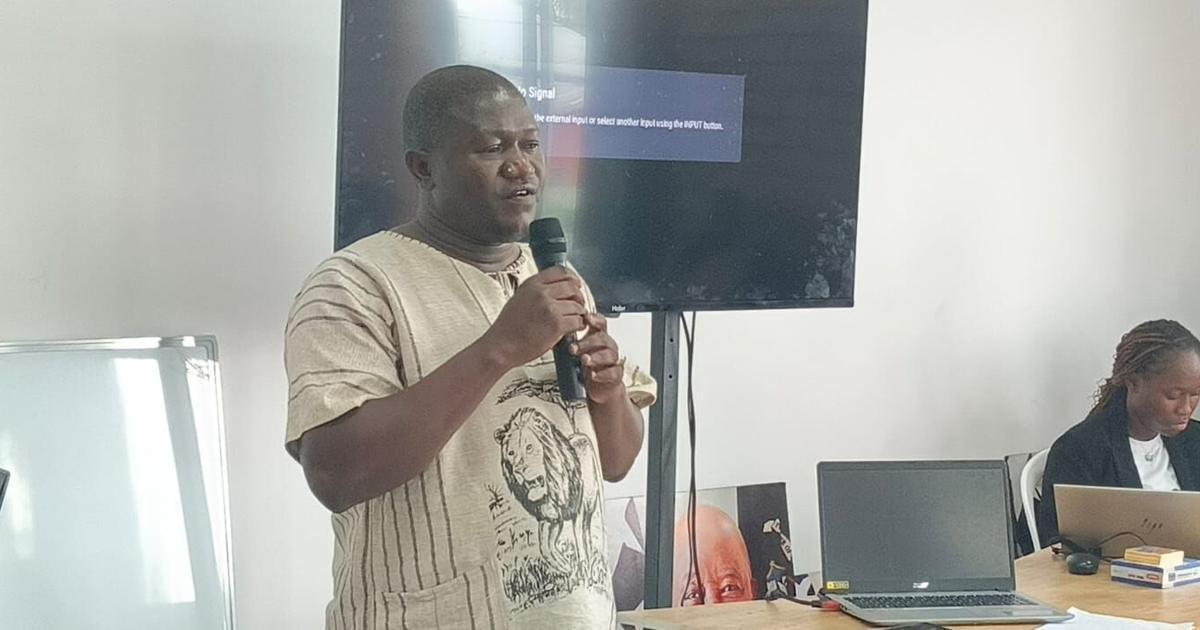Africa-Press – Liberia. The Agricultural and Industrial Training Bureau (AITB), in collaboration with the Liberia Research and Development Network (LRDN), has officially launched a nationwide Technical and Vocational Education and Training (TVET) Compliance Monitoring and Gap Analysis Study.
This strategic initiative aims to strengthen Liberia’s TVET sector by addressing systemic gaps, enhancing curriculum quality, and ensuring institutional compliance with national standards.
The two-day training workshop for enumerators and supervisors signaled the beginning of this landmark research effort, which is being fully funded by the Government of Liberia.
In remarks delivered at the launch, AITB Director General Mr. Abraham Billy expressed deep appreciation to the Liberian government for prioritizing this critical national effort.
“This study is a necessary step toward addressing long standing challenges across public, private, and non-formal TVET institutions including digital shops, garages, capital shops, and marketing hubs,” Billy said.
The idea for the study was conceived following the inauguration of President Joseph Nyuma Boakai. Director Billy noted that while a pilot phase was launched in partnership with LRDN, the scale of issues uncovered necessitated a full nationwide rollout. He acknowledged the key technical role played by Deputy Director General for Technical Services, Mr. Wesley D.M. United, who is currently absent due to health reasons.
Liberia has made notable progress in TVET reform through initiatives such as the National TVET Policy, National Qualifications Framework (NQF), and the development of standardized tools in collaboration with UNESCO. However, curriculum fragmentation remains a significant barrier.
“Many institutions still operate with outdated or externally developed curricula that are not aligned with national standards. This undermines the quality and credibility of our TVET programs,” Billy emphasized.
To address this, AITB plans to establish a National Technical Committee composed of academia, government, development partners, and instructors to harmonize TVET curricula across the country.
Billy urged enumerators to approach their task with integrity and professionalism: “This is more than a survey, it is a national mission. Your data will shape Liberia’s educational future and workforce development. Act with discipline, avoid disclosing sensitive information, and always consult your supervisors when in doubt.”
He also commended the gender-balanced composition of the data collection team, which enhances the ability to gather sensitive and inclusive information in the field.
Providing an overview of the study, Mr. Gibson Flomo, Program Manager at LRDN, thanked AITB and the Government of Liberia for commissioning this important national assignment.
“The Liberia Research and Development Network is honored to conduct this comprehensive study, officially titled the Nationwide TVET Gap Analysis and Compliance Monitoring Study. It will critically examine the current landscape of TVET in Liberia,”
He outlined three core objectives of the study which includes to evaluate how well TVET curricula match the realities and needs of the national job market, to assess institutional adherence to regulatory frameworks and quality benchmarks to ensure consistency and accountability, and To develop evidence-based policy proposals that will guide future reforms and improve youth employment outcomes.
Flomo traced Liberia’s TVET roots to the early 20th century, with historic institutions like the Booker Washington Institute (1929) and the Liberia-Swedish Vocational Training Center, now managed by ArcelorMittal in Yekepa. However, he noted the civil war (1989–2003) significantly disrupted progress, leaving the sector under-resourced and misaligned with national development needs.
He praised recent reforms, including the 2015 TVET Policy and the 2018 establishment of the Commission on TVET, but emphasized the need for further action informed by accurate data and stakeholder engagement.
The study will deploy both qualitative and quantitative research methods to assess institutional performance, examine stakeholder experiences, and evaluate curriculum relevance. Key issues to be explored include institutional compliance and program quality, graduate employability and job-readiness, gender and regional equity in skills training, and private sector engagement and needs
The final findings will lead to the development of three targeted policy briefs intended to guide government, donors, and education stakeholders on the future of TVET reform in Liberia.
“We at LRDN believe that effective policy starts with strong evidence,” Flomo said. “This study is designed to identify root causes of skill gaps and propose actionable solutions.”
He encouraged all participants, government officials, stakeholders, youth volunteers, enumerators, and supervisors to see themselves as active contributors to Liberia’s national development.
As Liberia strives to revamp its skills development landscape, the AITB-LRDN partnership marks a decisive move toward a more effective, inclusive, and responsive TVET system. The nationwide study is expected to play a pivotal role in shaping policies that will empower young Liberians and build a competitive workforce for sustainable national growth.
For More News And Analysis About Liberia Follow Africa-Press






